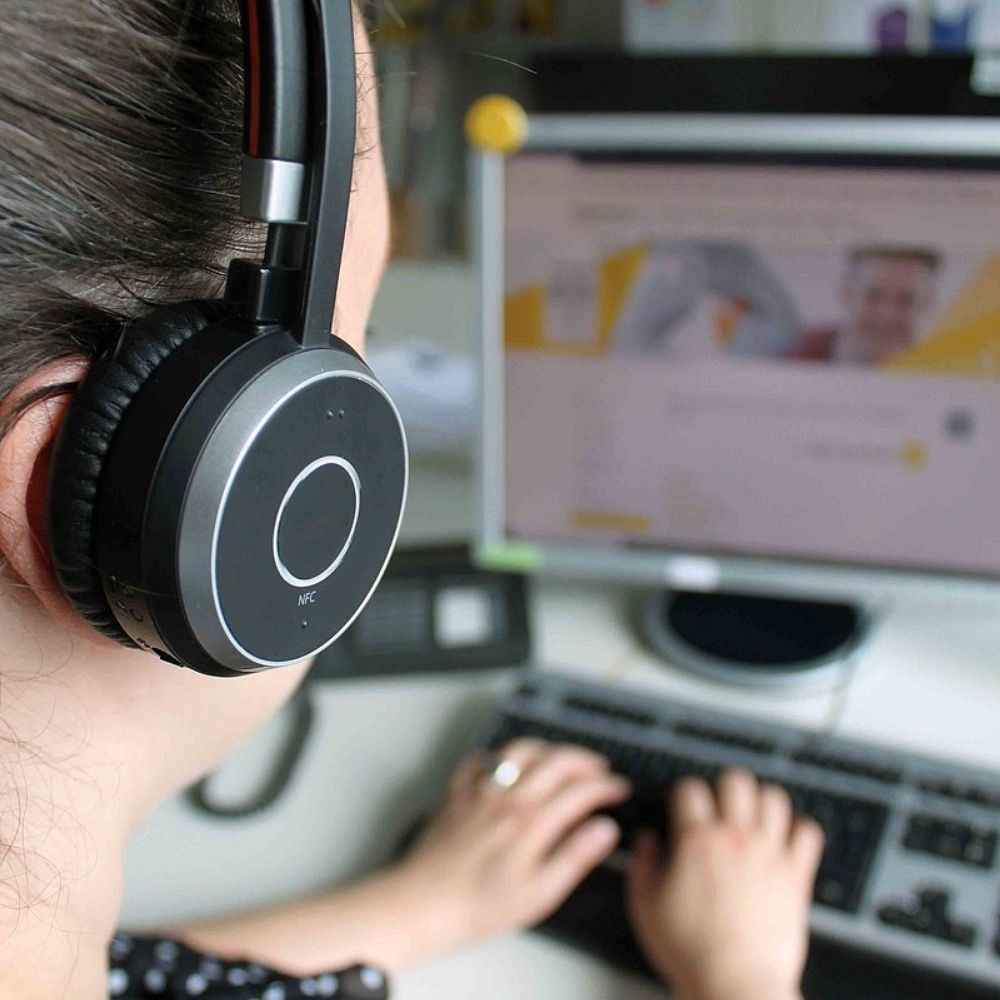Well over 15 million headphones were sold in Germany last year 2020.[1] Digitalized communication channels ensure intensive use and strong demand in private and professional environments. But what happens to the many used headphones? The reparability and climate impact of material production are sustainability aspects that strongly concern our customer and headphone manufacturer Jabra.
With our many years of experience in all areas of the circular economy, we as TechProtect GmbH have supported our customer Jabra in their search for answers. Due to our expertise and business relationships, we were able to help Jabra to a successful cooperation with Pforzheim University.
As part of this cooperation, seven student groups worked in an interdisciplinary manner to answer the questions posed at the beginning of the project and developed approaches for improving headphone development and production. The investigations were based on disassembly tests and material analyses in the laboratory for sustainable product development. The work was carried out by students from the Master’s degree program in Mechanical Engineering/Product Development and Bachelor’s degree programs in Industrial Engineering International from the Faculty of Engineering and Resource Efficiency Management from the Faculty of Business and Law. The responsible professor, Dr. Jörg Woidasky, describes the research as follows: “Product development can only work well in an interdisciplinary way and as a team, and that’s exactly what we were able to do together in the events across course and faculty boundaries.”
The master’s students aim to find ways of improving the reparability and dismantlability of Jabra headphones. The gluing and welding of up to one third of all connections of the different headphone models prevents high-quality material recycling. Clip solutions or standardized screw connections are excerpts from the resulting recommendations for action. Dr. Claus Lang-Koetz, professor of sustainable innovation management, describes: “Even the production of an over-ear headphone causes the emission of more than 24 kg of greenhouse gas equivalents, but that of a simple mono headset only about 2 kg.
Maurits Hekking, as the responsible project manager at Jabra and Sustainability Manager at Jabra’s parent company G/N Store Nord A/S, is very pleased with the cooperation and the results: “We were initially a little reluctant to provide the used equipment for dismantling, but the students’ results have far exceeded our expectations for the project. We are now discussing what next steps we can take together in the near future.”
TechProtect GmbH is also proud to have laid the foundation for this successful cooperation. The topic of sustainability is firmly anchored in our corporate values and is reflected in a variety of our services. We advise our customers and support them in their sustainable orientation. A sustainable positioning in the market has long been necessary and ensures long-term competitive advantages. We would like to thank all those involved who contributed to the success of this project.
[1] https://de.statista.com/statistik/daten/studie/256416/umfrage/absatz-von-kopfhoerern-in-deutschland/
